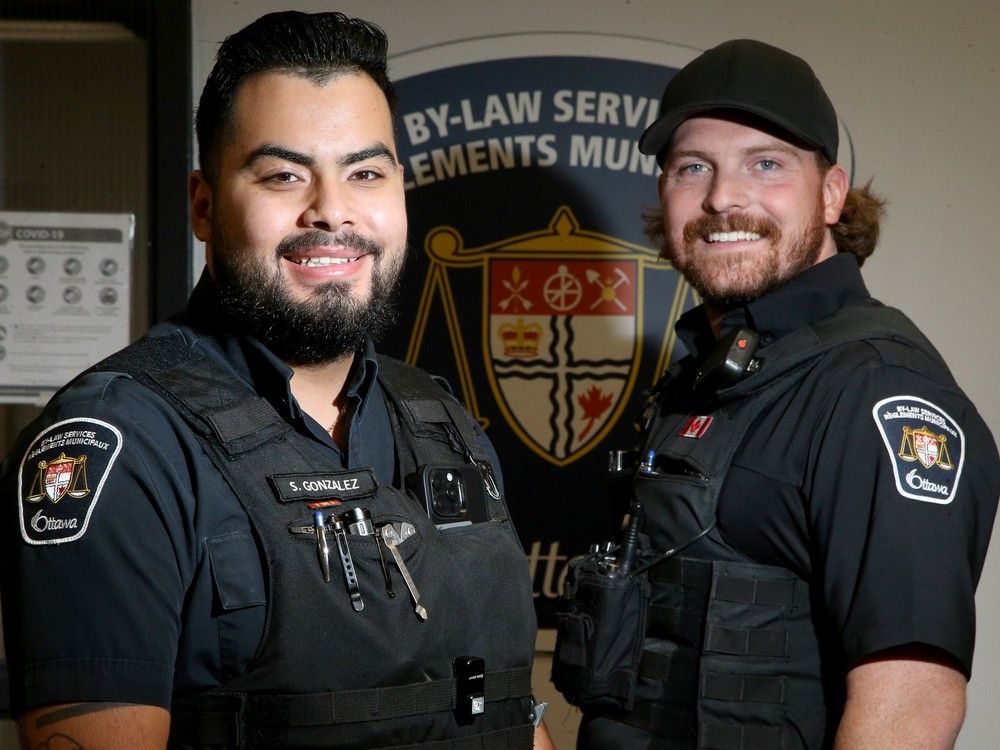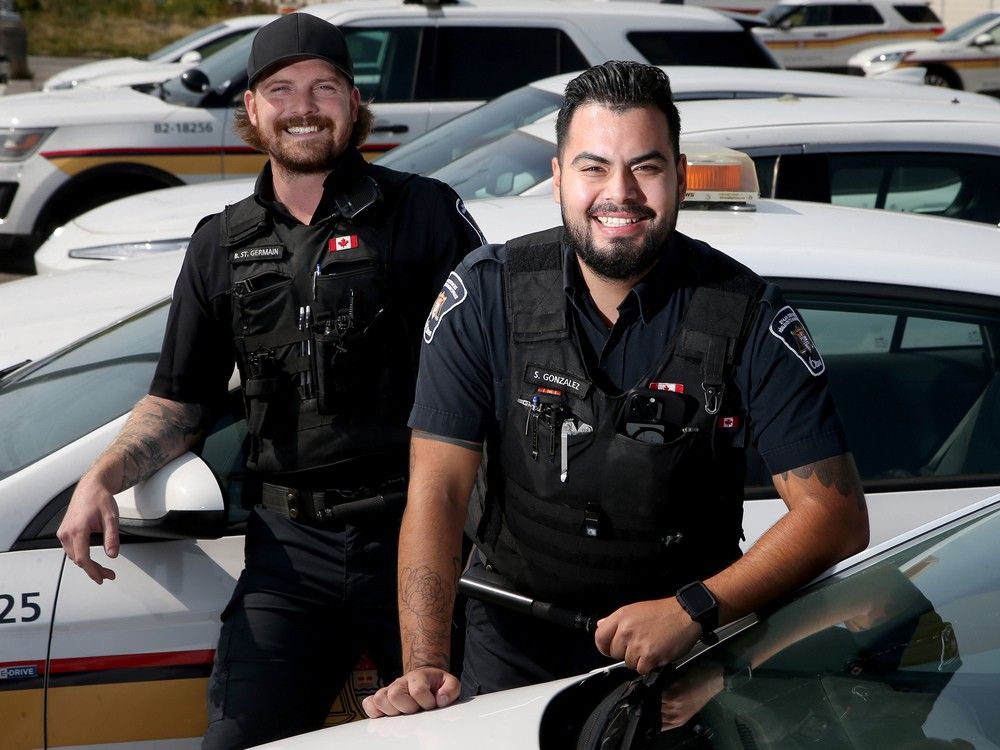Bylaw officers
hand out parking tickets and fines for raucous parties. They check out reports of property standards gone south. They license businesses and answer calls about off-leash dogs and livestock at large.
Bylaws are dozens of local regulations voted into existence by city councillors, a list ranging from the location of clothing donation boxes to idling vehicles that govern how Ottawa residents behave and use their own properties and public spaces. No less than 13 city bylaws govern landscaping alone.
“I don’t think the public truly understands the scope of the work to have a functioning civil society,” says Coun. Riley Brockington, chair of the city’s emergency preparedness and protective services committee.
Brockington noted there were events to honour police, firefighters and paramedics,
but not bylaw officers
, so he wanted to remedy the situation.
On Thursday, Ottawa will honour bylaw and regulatory services staff with its first bylaw appreciation day, marked by a flag-raising ceremony at city hall, and comments from Mayor Mark Sutcliffe and other officials.
“
No one likes to get a ticket
. But they’re professionals. They do work that not always appreciated for acknowledged,” Brockington says. In August, a bylaw officer was attacked and injured outside city hall after issuing a parking ticket. Another city employee intervened and stopped the assault.
New duties for Ottawa bylaw officers have been added in the past decade, including licensing short-term rentals like Airbnb, answering calls about sick or injured wildlife and substantiating the evidence captured for automated speeding tickets, bylaw spokesperson Jonathan Walden says.
In 2015, Ottawa had 158 full-time bylaw workers. By last year, there were 222.
Bylaw officers take custody of pets belonging to people who have been taken into protective care or have been hospitalized, incarcerated or who have died. Officers have apprehended a tarantula and a full-sized pig. When there’s a fire in a highrise apartment building, bylaw officers are the ones who search the premises for missing pets after fire has been extinguished.
“No day is ever the same,” says Walden, who notes that bylaws are often open to interpretation. What’s a weedy eyesore to one person can be another’s treasured naturalized garden.
Some bylaw officers are known as “generalists,” and many start out in parking regulation. Others who focus in particular areas of enforcement are known as “specialists.”
Brayden St. Germain graduated from Algonquin College’s police foundations program and started, as many bylaw officers do, in parking enforcement.
“Parking is an ‘absolute offence,’” says St. Germain, who has since moved to short-term rental licensing. “It’s not open to interpretation.”
Bylaw officers need to remain neutral. “We’re here to improve the safety and protection of residents,” St. Germain says. “I treat people the way I want to be treated.”
Calls about dogs that are off-leash and injured wildlife are common. St. Germain, who was once sprayed while capturing an injured skunk, says standard procedure for apprehending an injured skunk is to hold a towel in front of you and hope the towel is large enough and the skunk is accommodating.
St. Germain recalls receiving a call form a parking lot where a dog had apparently been abandoned in a crate. The dog, which turned out to be a six-month-old puppy, was whining and crying. It was dark and the caller couldn’t provide any information about the driver.
“This dog was terrified,” says St. Germain, who delivered the pup to the Ottawa Humane Society, where it was soon adopted. “You could tell he had never been shown any love and affection. I could tell it as the happiest the dog had ever been.”

Sebastian Gonzalez was working as a security screening officer at the Ottawa International Airport when he decided to apply to become a bylaw officer. He would eventually like to pursue a career in policing.
He recalls attending a property standards call about inefficient heating in a rooming house on a winter night so cold he could see his breath inside. The furnace had broken down and residents were heating the place with an oven that was open and cranked up.
Normally the protocol is to contact the landlord and ask for the heat to be restored. A bylaw officer can also call to have space heaters placed in a unit, but this can sometimes be a fire hazard. Gonzalez called firefighters to do an assessment and learned it wasn’t safe.
“I couldn’t go home while there were people freezing,” he says.
There were 12 to 15 occupants in the house. Gonzalez came across a family of four who spoke only Spanish. As it was his first language, he started a conversation.
“It hit home for me. My mother left her home country fleeing gang violence,” he says. “The dad said, ‘We’ve been though worse.’ It was heart-breaking. I could admire his show of strength for the kids.”
If a heating issue isn’t resolved, protective services can also offer a hotel room at the landlord’s expense.
It took about two hours for the landlord to get the furnace running. The pipes thawed and the heat started to make a difference. Gonzalez warned the landlord there would be an immediate ticket if it happened again in the future.
“Everyone sees bylaw and they think, ‘Here’s the ticket guys.’ The residents of the city don’t see things like this,” he says. “There are calls that get our emotions going. We do make a difference. It feels good to make that difference.”
Our website is your destination for up-to-the-minute news, so make sure to bookmark our homepage and sign up for our newsletters so we can keep you informed.
Related
- Deachman: Barber, Lich sentencing ends another sorry chapter of the convoy
- Why is a giant baby head on view at the National Gallery of Canada?



